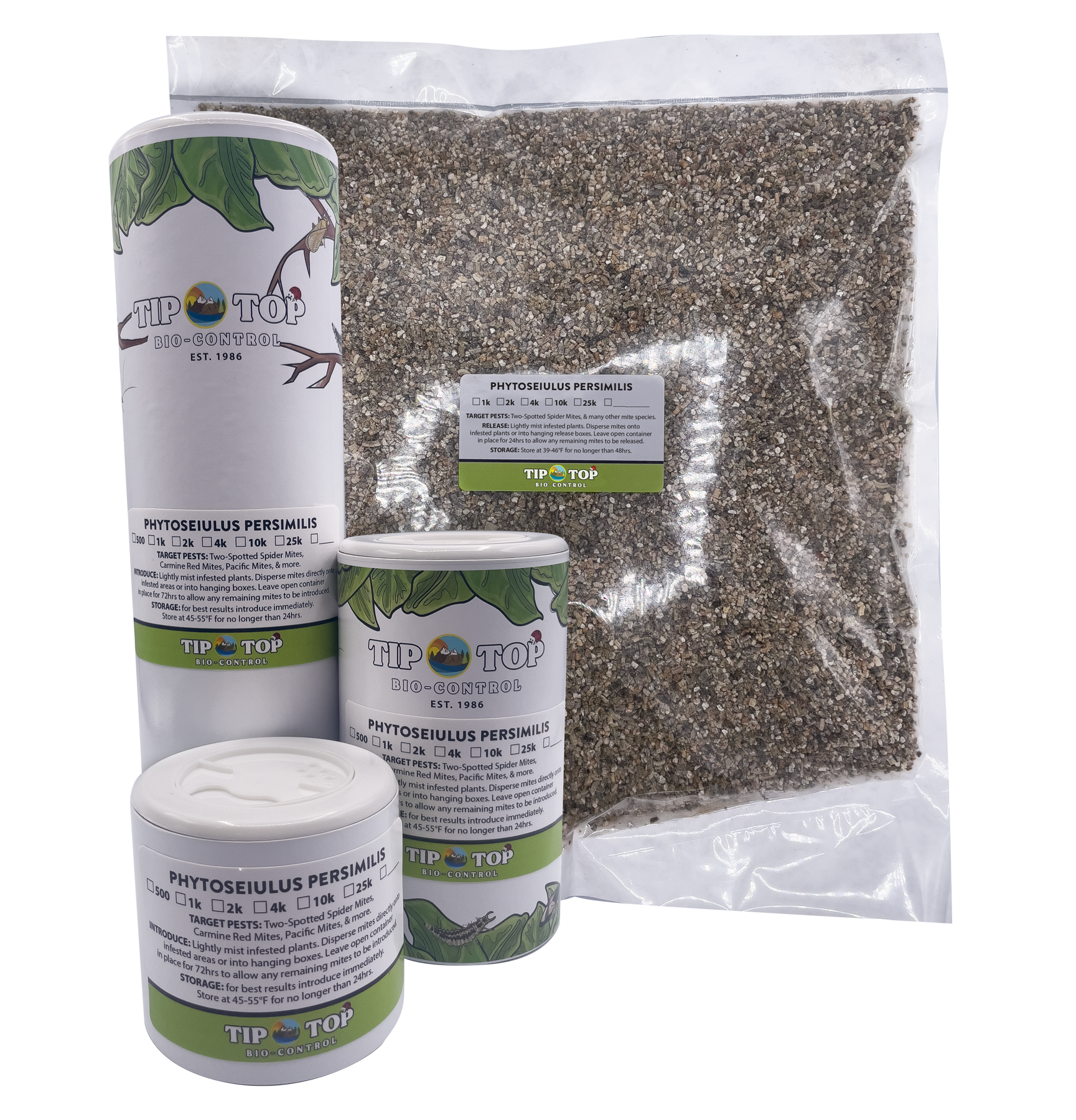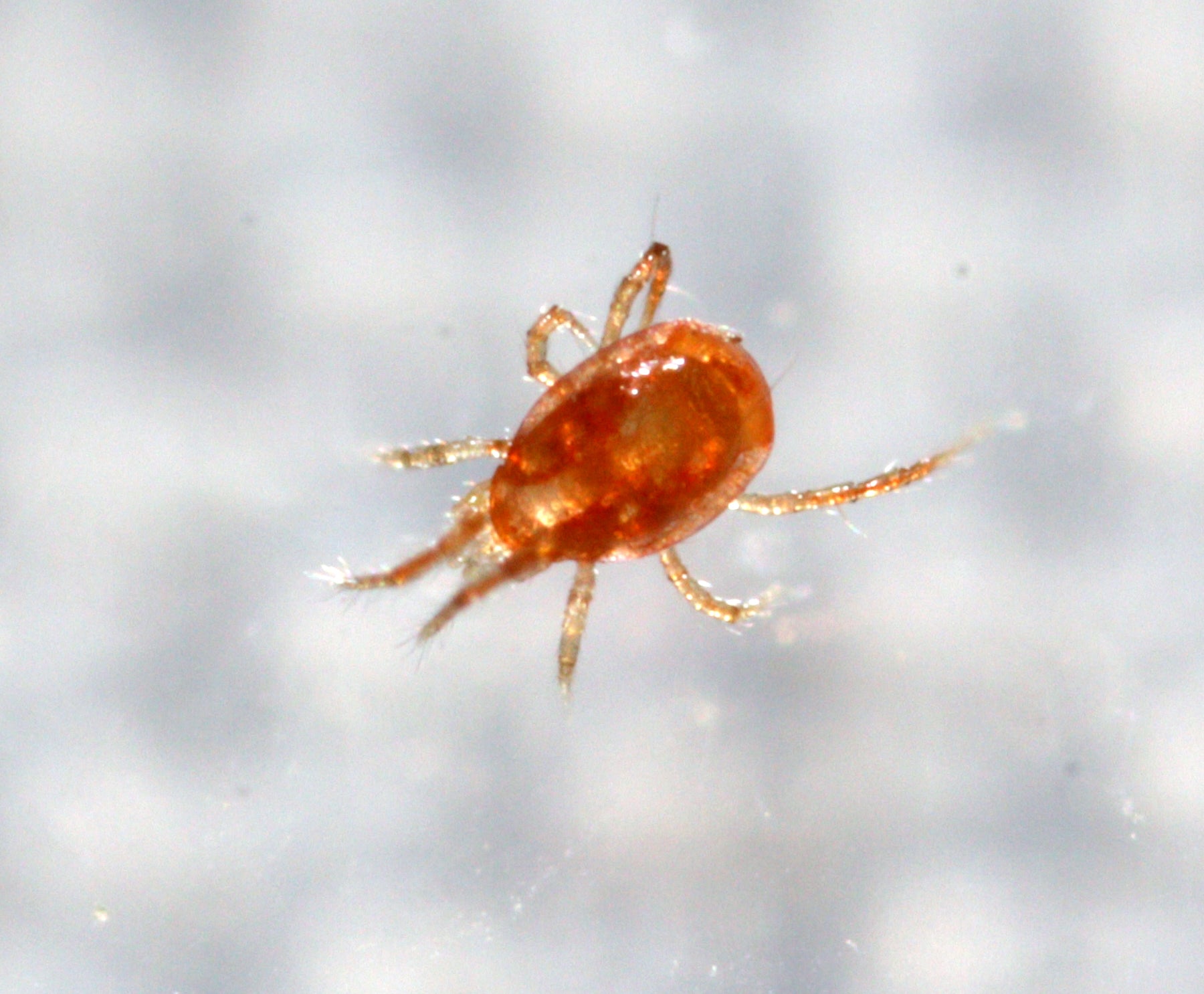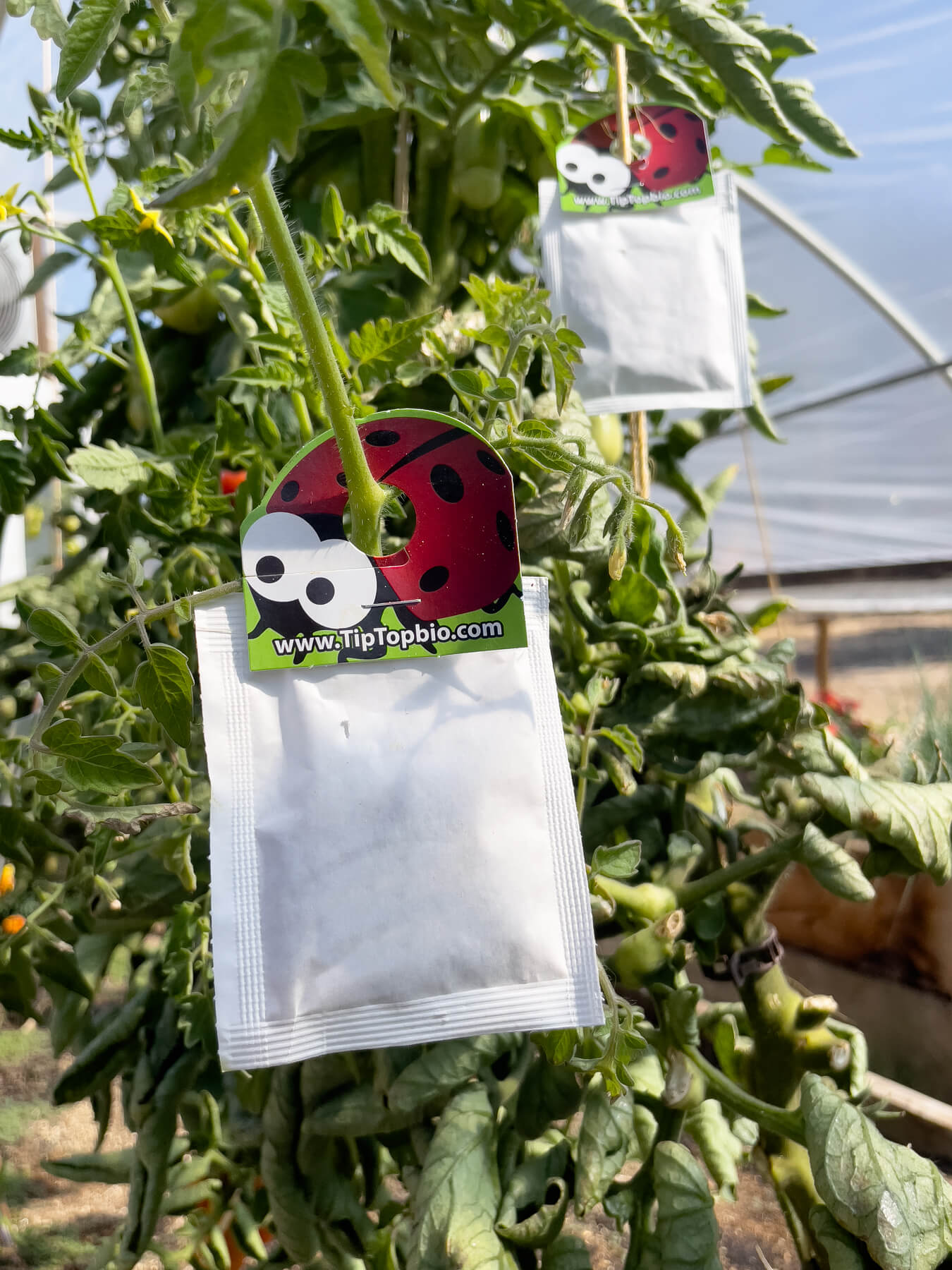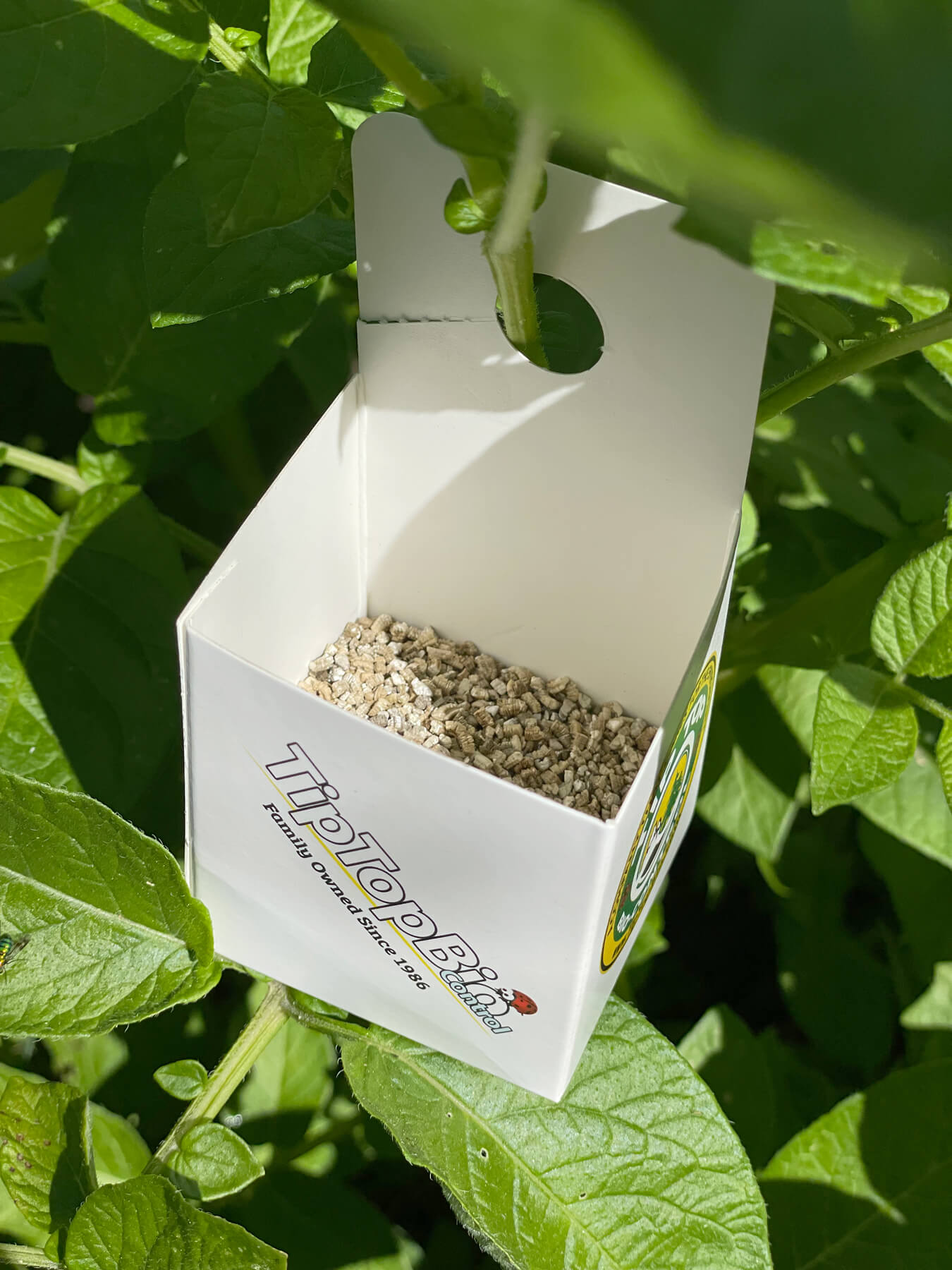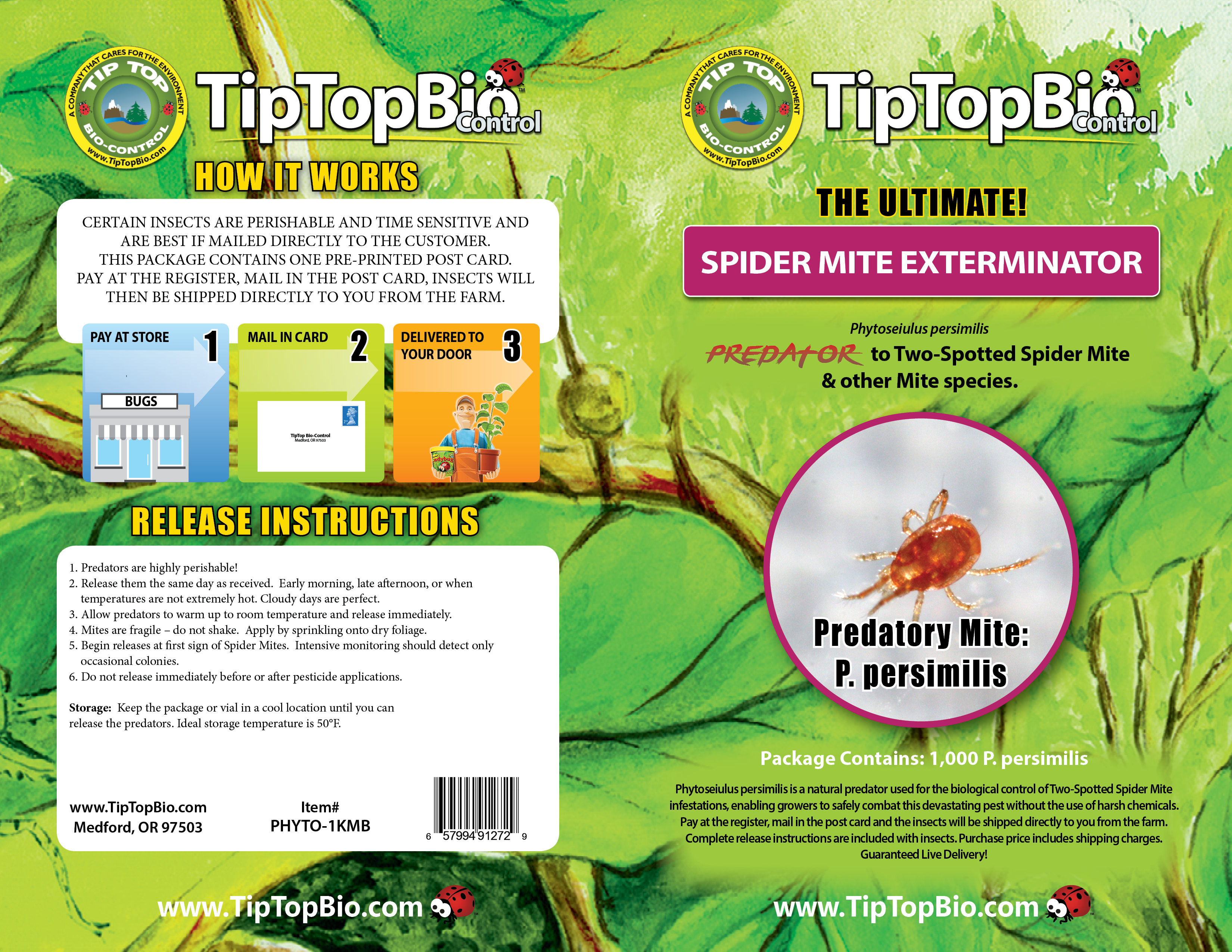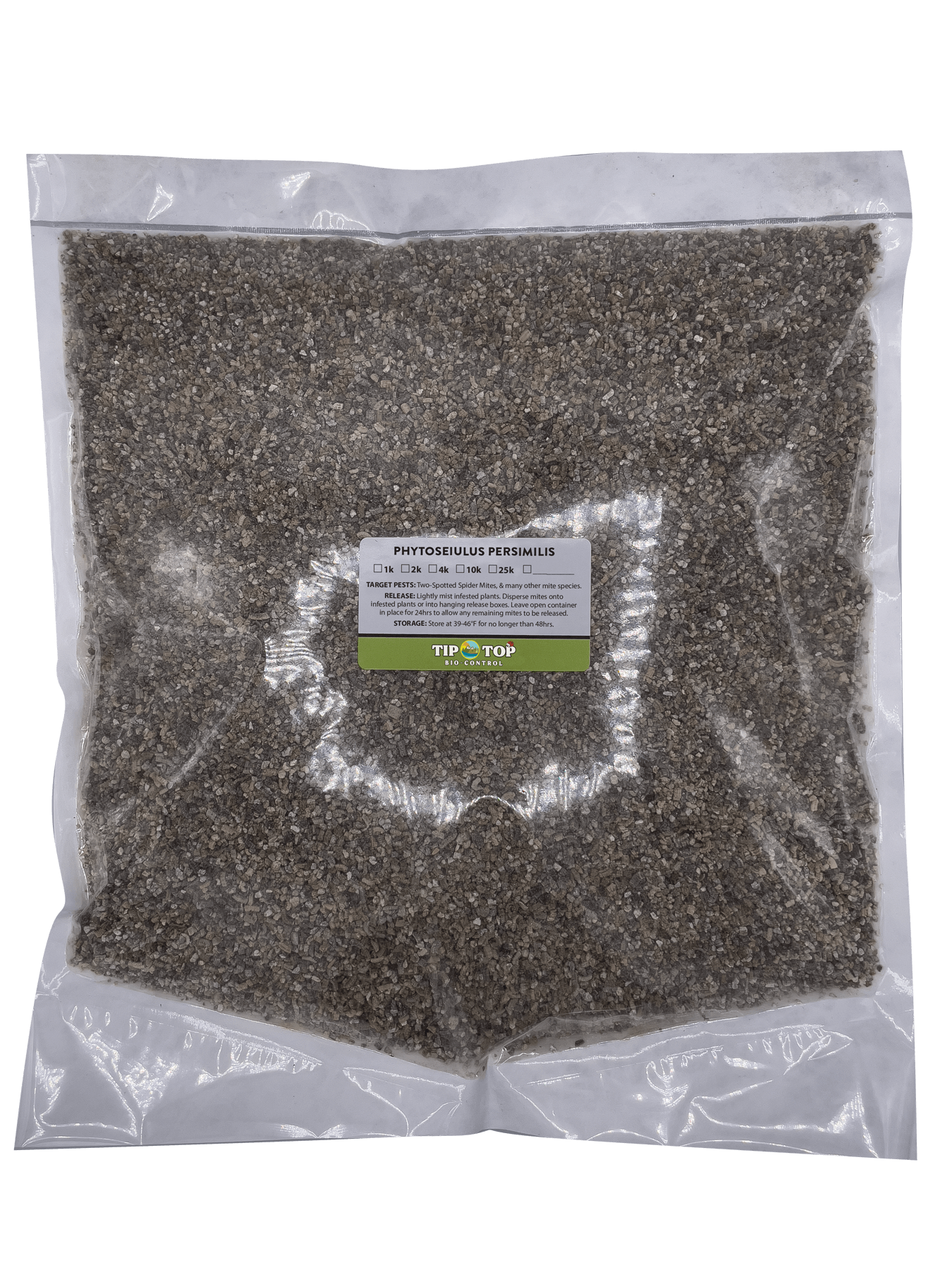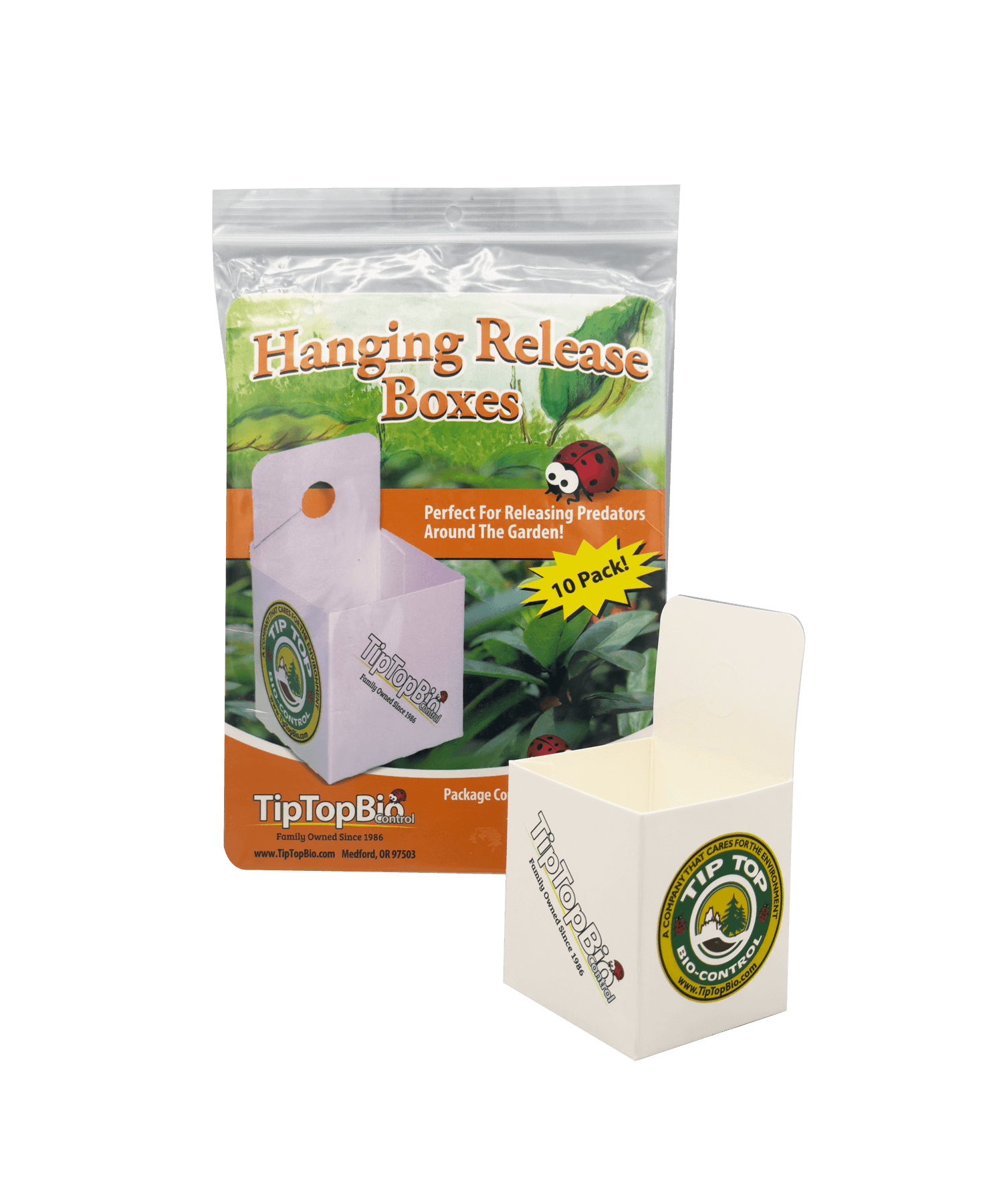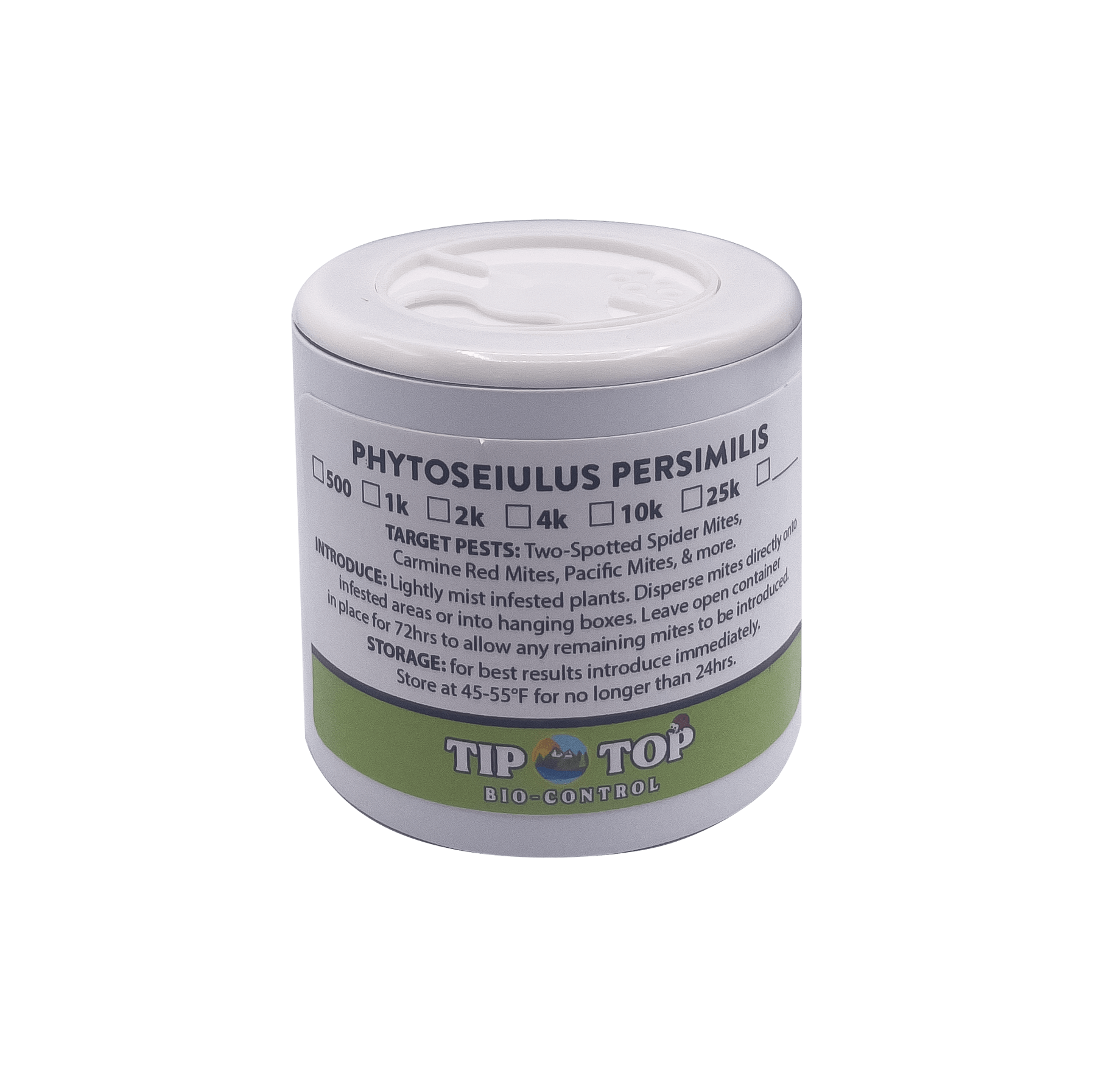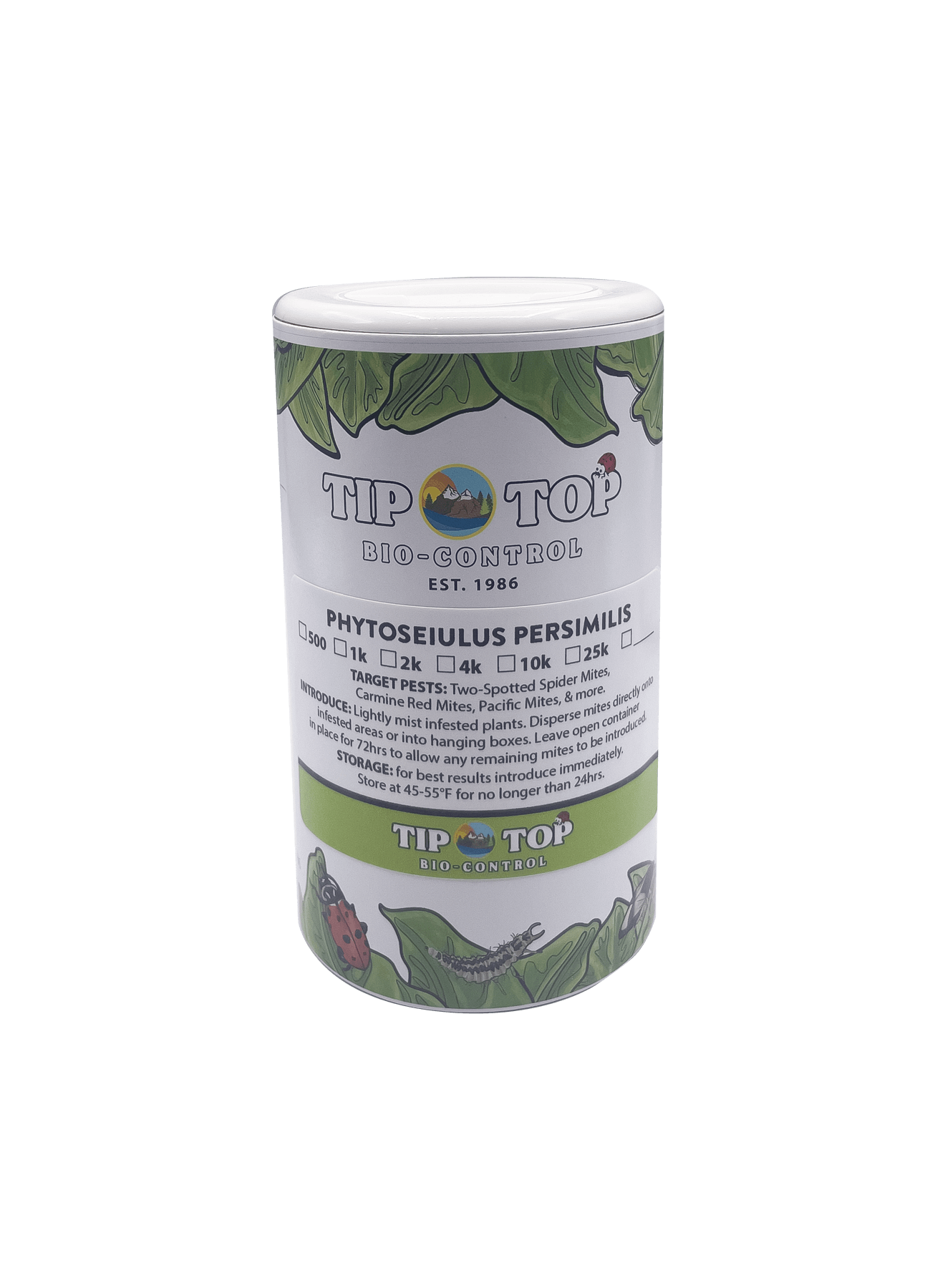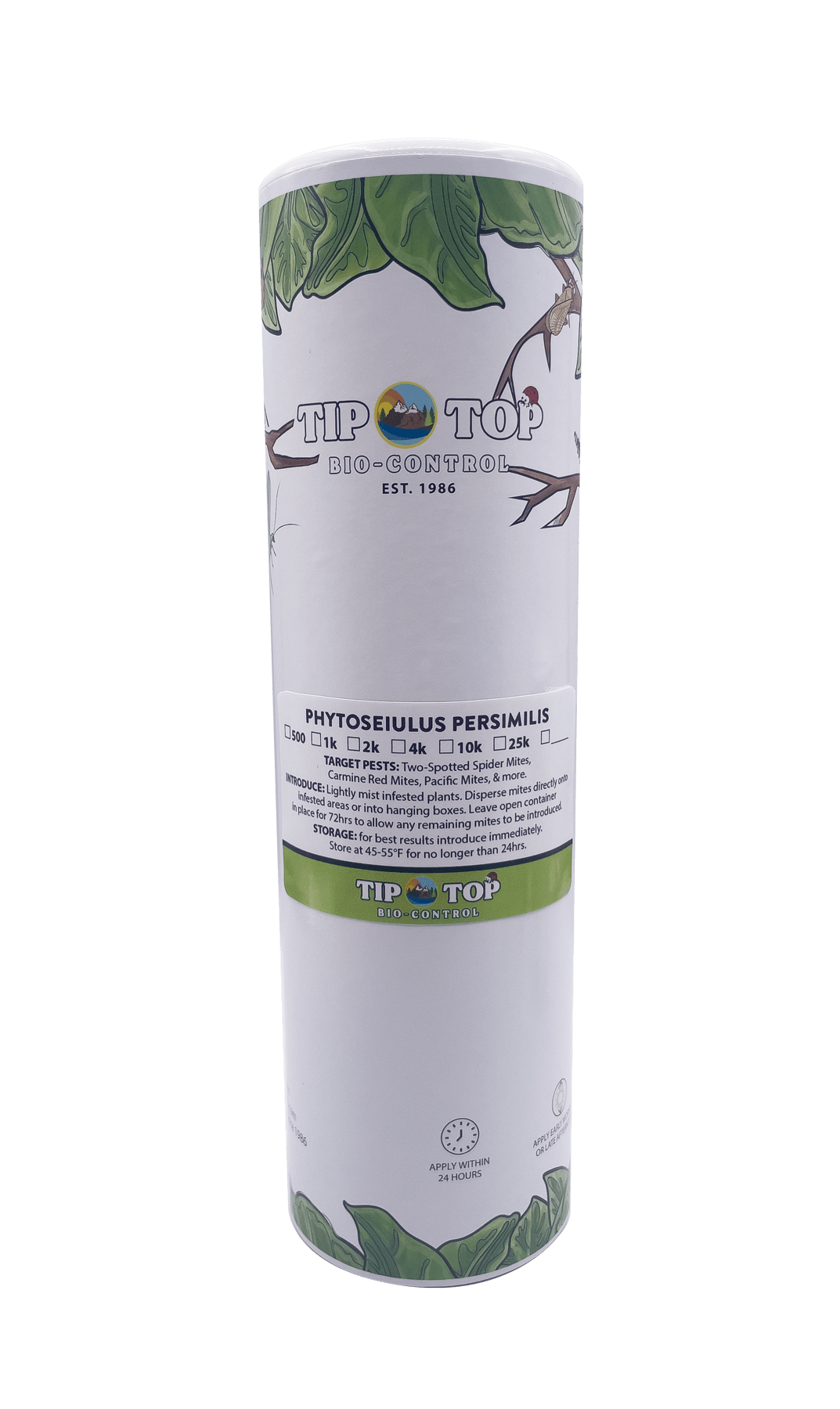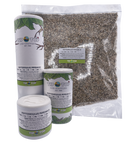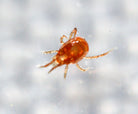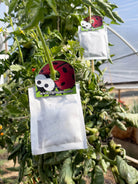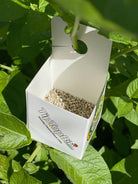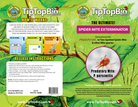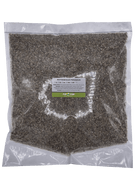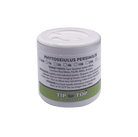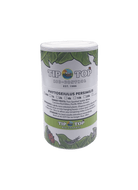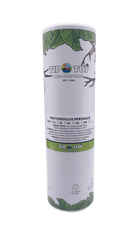Phytoseiulus persimilis - Two Spotted Spider Mite Specialist!
Case Count
Couldn't load pickup availability
LIVE DELIVERY GUARANTEE
Two spotted spider mite specialist. Performs well in crops where relative humidity remains above 65%.
TARGET PESTS
Two-Spotted Spider Mites, Carmine Red Mites, Pacific Mites, & more.
DESCRIPTION
Scientific Name: Phytoseiulus persimilis
PERSIMILIS are predatory mites widely used to manage pest mite populations, particularly the two-spotted spider mite. These small eight-legged predators have long legs, a bright orange to red colored pear-shaped body, and are about 1mm in size. Their small size gives PERSIMILIS an advantage to navigate the intricate webbing produced by spider mites, effectively targeting and consuming their prey. Under favorable conditions, the entire life cycle from egg, larva, nymph, and adult can be completed in about one week. Females lay individual, spherical, translucent eggs on the underside of leaves near pest populations. The eggs hatch within 2-3 days and emerge as larvae with three pairs of legs ready to feed on small prey, including spider mite eggs. As they develop through two nymphal stages, they are able to target larger sized immature and adult spider mites, and finally developing into adults and consuming large numbers of spider mites in all life stages.
TEMPERATURE
68-90°F
PREDATORY MITES IN BOTTLES vs SLOW RELEASE SACHETS
ADULT MITES IN BOTTLES:
Best choice for an active infestation.
-
High percentage of hungry adults.
- Introduce weekly or bi-weekly, as needed.
- Introduce mites directly on infested plants or use Hanging Boxes to introduce predators neatly and concentrated on infested areas.
Predatory mites in bottles are a cost-effective and targeted solution to address active infestations or to cover extensive areas common in large scale gardens, greenhouses, and agricultural areas. While predatory mites are available in all life stages, bottles contain high concentrations of hungry adults, ensuring an immediate impact on pest populations. Whether distributed directly onto plant foliage or divided into optional Hanging Boxes, the adults will actively seek out prey as the immature predatory mites hatch, develop, and continue the cycle for sustained pest management.
SLOW RELEASE SACHETS WITH ALL LIFE STAGES:
Don't fight pests, prevent them.
-
Preventative and maintenance programs.
- Inexpensive and easy application.
- Steady flow of predators for 2-4 weeks.
Slow Release Sachets stand out as a convenient, time-saving, and highly effective approach to both preventative and long-term mite pest management. These sachets serve as a slow-release and protective haven for immature predatory mites. Sachets are a user-friendly and convenient method of targeted application in situations where manual application might be intrusive or impractical. The distribution process is as straightforward as hanging a sachet on a plant or in areas where pest management is crucial, ensuring a consistent and reliable presence of predators.
INTRODUCTION RATES
BOTTLE INTRODUCTION
0.5-2 mites per sq. ft, as needed.
SACHET INTRODUCTION
Hang 1 sachet per 3-6 feet, every 2-4 weeks.
It's important to note that these release rates serve as general guidelines and may vary based on the specific pest species, the crop or plant being treated, and level of infestation. Proper monitoring of the infestation and the subsequent effectiveness of the released beneficial insect population is crucial for determining the success of the biological control strategy.
STORAGE
For best results introduce immediately. Store at 45-55°F for no longer than 24hrs.
PRO TIPS:
Proper identification of the pest species is important. Monitoring the crop closely and introducing beneficial insects early will help in control pest populations.
Pesticides, even wetting agents, and spreader-stickers may adversely affect beneficial insects' survival. Broad spectrum and systemic insecticides are toxic.
WHOLESALE
Not available in cases. Overnight shipping is required.
ITEM NUMBERS
PHYTO-500: 500 mites per bottle.
PHYTO-1K: 1,000 mites per bottle.
PHYTO-2K: 2,000 mites per bottle.
PHYTO-4K: 4,000 mites per bottle.
PHYTO-10K: 10,000 mites per bottle.
PHYTO-25K: 25,000 mites per bottle.
PHYTOSACHET250: 1 sachet with 250 mites per sachet.
PHYTOSACHET100-250: 100 sachets with 250 mites per sachet.

